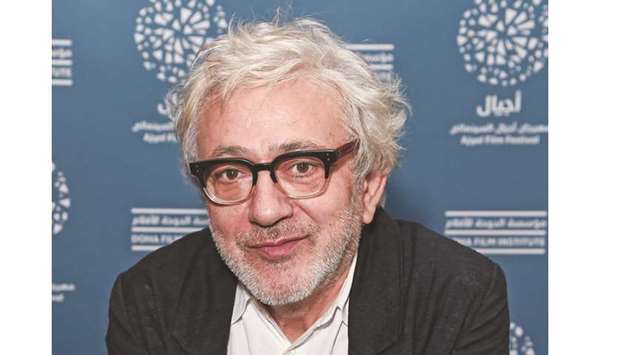Award-winning Palestinian auteur and director of the 7th Ajyal Film Festival’s opening night film It Must Be Heaven, Elia Suleiman spoke about how his work connects to current international events and relates to audiences through the language of silence.
“The film touches on many current events from globalisation to revolution, as the main character felt drawn to experience and become part of everything that is going on in the world. His feelings throughout the film are genuine as he is faced with fragility and alienation irrespective of where he goes,” Suleiman said at a press briefing.
On the choice to limit dialogue throughout the film, Suleiman said: “I wanted the audience to experience silence as a language separate from sound. Relying solely on pictures and removing the oftentimes cliched dialogue to tell a story allows for a different kind of cinematic experience.”
Suleiman is a Nazareth-born filmmaker, director and actor, who won wide acclaim as well as the Cannes Film Festival Jury Prize for his 2002 tragicomedy Divine Intervention. In his works, Suleiman masterfully uses his penetrating gaze and expressive body language to distil the soul of Palestinian identity.
Winner of the Jury Special Mention and FIPRESCI Critics’ Award at this year’s Cannes Film Festival, and Palestine’s entry for Best International Feature Film at the 92nd Academy Awards, It Must Be Heaven (France, Qatar, Germany, Canada, Turkey, Palestine/2019) is an internationally-acclaimed odyssey of identity, nationality and belonging, which poses one fundamental question: Where is the place we can truly call home? Speaking just four words in the entire film, Suleiman skillfully touches on the art of silent comedy roaring into the 21st century.

Elia Suleiman
